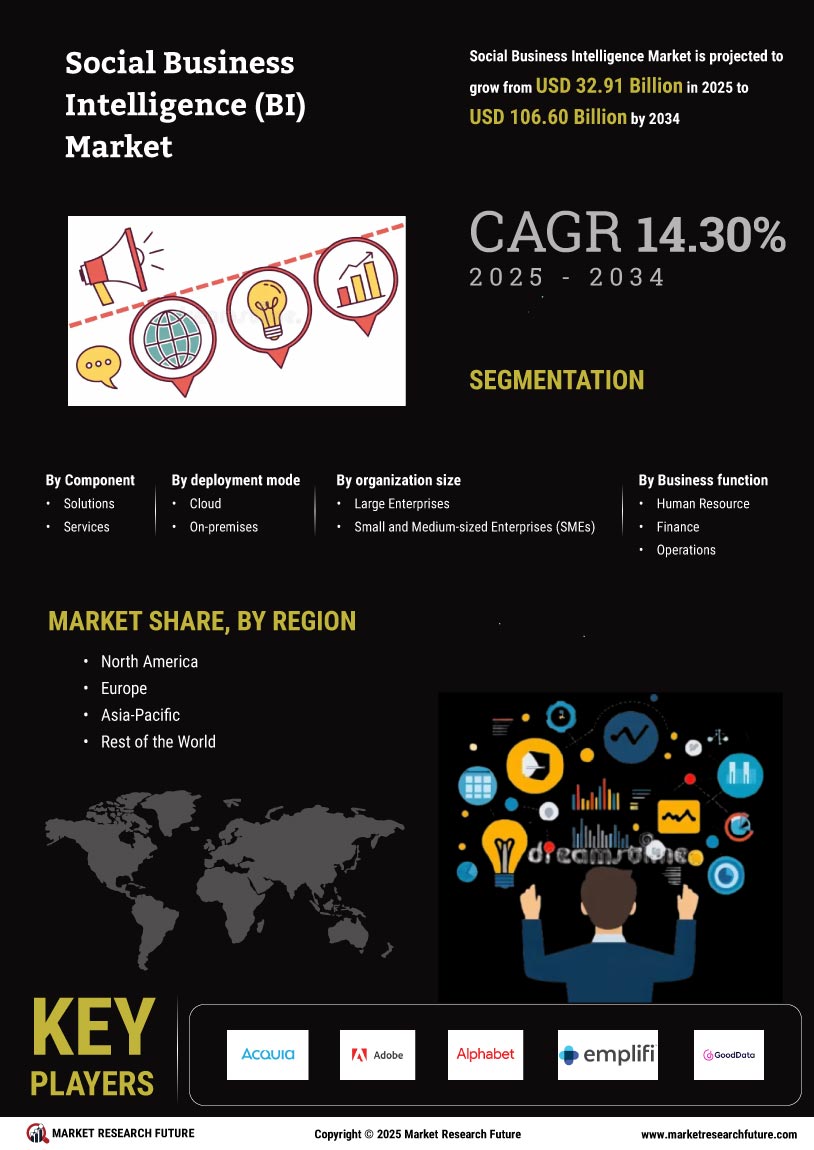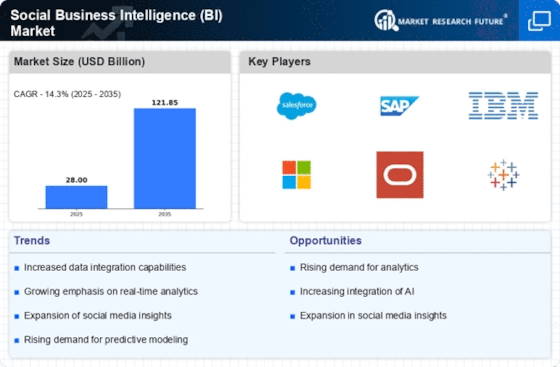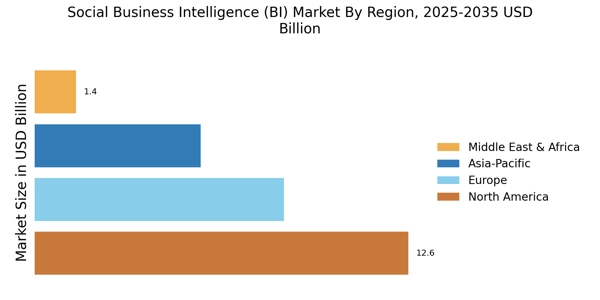Leading market players are investing heavily in research and development in order to expand their product lines, which will help the Social Business Intelligence (BI) market, grow even more. Market participants are also undertaking a variety of strategic activities to expand their global footprint, with important market developments including new product launches, contractual agreements, mergers and acquisitions, higher investments, and collaboration with other organizations. To expand and survive in a more competitive and rising market climate, Social Business Intelligence (BI) industry must offer cost-effective items. Manufacturing locally to minimize operational costs is one of the key business tactics used by manufacturers in the global Social Business Intelligence (BI) industry to benefit clients and increase the market sector. In recent years, the Social Business Intelligence (BI) industry has offered some of the most significant advantages to medicine. Major players in the Social Business Intelligence (BI) market, including Acquia Inc., Adobe Inc., Alphabet Inc., Emplifi Inc, GoodData Corp., Hewlett Packard Enterprise Co., International Business Machines Corp., Ipsos Group S A, Maritz Holdings Inc., Microsoft Corp., NetBase Solutions Inc., Oracle Corp., Piano Software Inc. Qualtrics International Inc., Salesforce Inc., SAP SE, SAS Institute Inc., Sprout Social Inc., Vista Equity Partners Management LLC, and others, are attempting to increase market demand by investing in research and development operations. Enterprises can get cloud-based solutions from Oracle Corp (Oracle). The business provides hardware systems, application software, cloud infrastructure software, database and middleware software, and hardware. Additionally, it provides integrated cloud solutions, such as Software as a Service (SaaS) and Infrastructure as a Service (IaaS). Oracle offers licence updates, new licences, and solutions for related support for new on-premises applications. Through independent software and hardware manufacturers, system integrators, and resellers, the corporation distributes its solutions. Hardware, servers, storage, networking, and industry-specific devices are among its on-premises offerings, along with related support and services. Asia-Pacific, Europe, the Middle East, and the Americas are all regions in which the corporation operates. In the US, Austin, Texas, serves as the home base for Oracle. Information technology (IT) goods and services are offered by International Business Machines Corp (IBM). The business creates and markets software and hardware for computers, in addition to providing infrastructure, hosting, and consulting services. Analytics, automation, blockchain, cloud computing, IT infrastructure, IT management, cybersecurity, and software development tools are all part of IBM's product range. The business also provides services in the areas of cloud computing, networking, security, technology consulting, application services, business resilience services, and tech support services. The industries it supports include those in the automobile, banking and financial markets, electronics, energy and utilities, healthcare, insurance, life sciences, manufacturing, metals and mining, retail and consumer goods, and telecommunication sectors. In addition to Asia-Pacific, the corporation also conducts business in the Americas, Europe, the Middle East, and Africa. The US city of Armonk, New York, serves as the home of IBM.

















